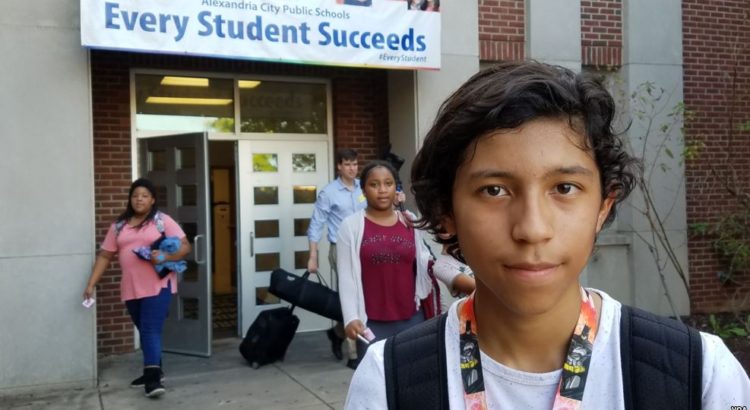América del Norte/Estados Unidos/Noviembre de 2016/Fuente: Voa News
RESUMEN: En 20 años de enseñanza cívica, Javaughn Perkins nunca ha encontrado una carrera presidencial tan llena de peligros educativos como la que ahora entra en su última vuelta. Entre los escollos: insultos raciales y étnicos, conversaciones anti-musulmanas, vergüenza y apodos. «Una gran parte de la retórica, muchos de los anuncios que están por ahí tienden a centrarse en temas que, como instructor, no consideraría bueno para la conversación general», dice Perkins, en su aula en la mayoría de las minorías George Washington Middle School en este suburbio de Washington, DC «Enseño a estudiantes de octavo grado, que son conscientes de la imagen», añade Perkins. Algunos de ellos están tomando la retórica personalmente. Un estudiante confió a Perkins que estaba apagado cuando Trump, moviendo sus brazos espasticamente, aparentemente se burlaba de un reportero con una discapacidad. El estudiante también está discapacitado.
In 20 years of teaching civics, Javaughn Perkins has never encountered a presidential race quite so fraught with educational hazards as the one now entering its final lap.
Among the pitfalls: racial and ethnic slurs, anti-Muslim talk, fat-shaming and name calling.
«A lot of the rhetoric, a lot of the ads that are out there tend to be focused in on issues that, as an instructor, I would not consider good for general conversation,» says Perkins, in his classroom at the minority-majority George Washington Middle School in this suburb of Washington, D.C.
«I teach eighth-graders, who are image conscious,» Perkins adds.
Some of them are taking the rhetoric personally. One student confided to Perkins that he was turned off when Trump, moving his arms spastically, seemingly mocked a reporter with a disability. The student is also disabled.
With students of all colors, creeds, ethnicities and sizes in his class, Perkins has tried to sidestep «all of the stuff that doesn’t matter: sensationalism of the candidates, the sound bites. What you really want to be teaching the kids is how to critically examine the issues.»
In classrooms across the country, the presidential race is yielding disparate lessons. Some teachers have complained of a campaign «eliciting fear and anxiety among children of color, immigrants and Muslims» and giving license to crude language and threatening behavior, the rights group Southern Poverty Law Center said in a report it titled «The Trump Effect,” singling out Republican presidential nominee Donald Trump.
But educators also have found fertile new ground for civics exploration.
Perkins, for instance, is teaching about a historic first: a major political party has chosen a female nominee, Democrat Hillary Clinton. He’s also had students look at eligibility requirements for the presidency.
The research «gave us an opportunity to discuss what are some of the other expectations [for] our presidential candidates. We’ve looked at who has a law background, who has a political background,» Perkins says. His students wondered whether the Constitution should be amended to require government experience.
Fuente: http://www.voanews.com/a/teaching-civics-not-circus-of-us-presidential-race/3579502.html






 Users Today : 92
Users Today : 92 Total Users : 35459998
Total Users : 35459998 Views Today : 128
Views Today : 128 Total views : 3418593
Total views : 3418593